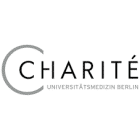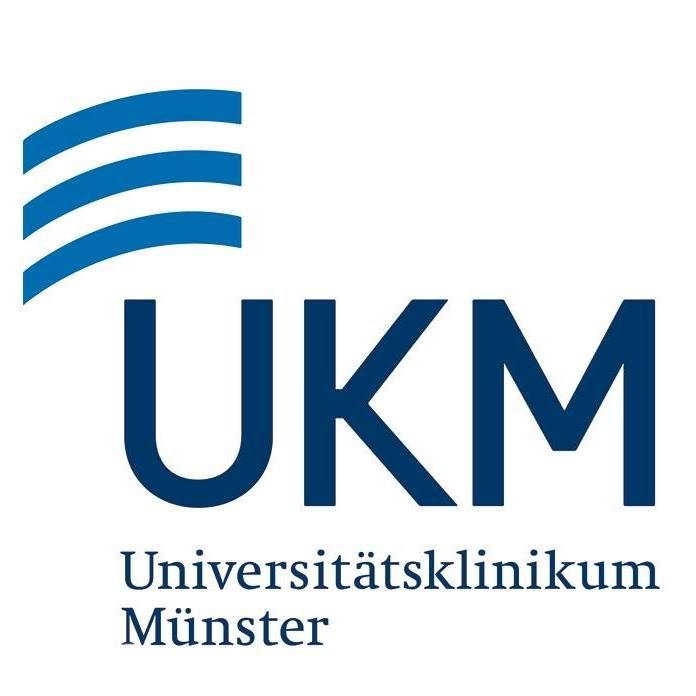预约演示
更新于:2025-05-07
Helmholtz Zentrum München Deutsches Forschungszentrum
更新于:2025-05-07
概览
标签
其他疾病
T细胞疗法
疾病领域得分
一眼洞穿机构专注的疾病领域
暂无数据
技术平台
公司药物应用最多的技术
暂无数据
靶点
公司最常开发的靶点
暂无数据
| 排名前五的药物类型 | 数量 |
|---|---|
| T细胞疗法 | 1 |
关联
2
项与 Helmholtz Zentrum München Deutsches Forschungszentrum 相关的药物靶点- |
作用机制- |
在研适应症 |
非在研适应症- |
最高研发阶段临床2期 |
首次获批国家/地区- |
首次获批日期- |
1
项与 Helmholtz Zentrum München Deutsches Forschungszentrum 相关的临床试验NCT05533242
A Phase I Trial to Determine the Maximum Tolerated Dose and Patient-specific Dosimetry of Fractionated Intracavitary Radioimmunotherapy with Lu-177 Labeled 6A10 Fab-fragments in Patients with Glioblastoma After Standard Treatment
Locoregional, intracavitary radioimmunotherapy (iRIT) with a newly developed radioimmunoconjugate (Lu-177 labeled 6A10-Fab-fragments) will be used to prevent or postpone tumour recurrence in patients with GBM following standard therapy .
Following study objectives will be analyzed:
* Determining the Maximum Tolerated Dose (MTD)
* Determining safety by assessing all new neurological, hematological and other AEs CTC grade 2 or higher
* Determining absorbed dose to the 2 cm shell of the resection cavity (based on a series of SPECT/CTs of the head 2h,24h,48h, 72h p.i. and on day 5-7)
* Determining absorbed dose values for the kidneys, the liver, the active marrow (based on a series of SPECT/CTs of the abdomen 2h,24h,48h, 72h p.i. and on day 5-7)
* Determining 24 weeks Progression-Free-Survival (PFS), defined from the day of inclusion
Following study objectives will be analyzed:
* Determining the Maximum Tolerated Dose (MTD)
* Determining safety by assessing all new neurological, hematological and other AEs CTC grade 2 or higher
* Determining absorbed dose to the 2 cm shell of the resection cavity (based on a series of SPECT/CTs of the head 2h,24h,48h, 72h p.i. and on day 5-7)
* Determining absorbed dose values for the kidneys, the liver, the active marrow (based on a series of SPECT/CTs of the abdomen 2h,24h,48h, 72h p.i. and on day 5-7)
* Determining 24 weeks Progression-Free-Survival (PFS), defined from the day of inclusion
开始日期2024-01-22 |
申办/合作机构 |
100 项与 Helmholtz Zentrum München Deutsches Forschungszentrum 相关的临床结果
登录后查看更多信息
0 项与 Helmholtz Zentrum München Deutsches Forschungszentrum 相关的专利(医药)
登录后查看更多信息
13
项与 Helmholtz Zentrum München Deutsches Forschungszentrum 相关的文献(医药)2024-12-01·Strahlentherapie und Onkologie
Adjuvant (chemo)radiotherapy for patients with head and neck cancer: can comorbidity risk scores predict outcome?
Article
作者: Schüttrumpf, Lars ; Zitzelsberger, Horst ; Reitz, Daniel ; Baumeister, Philipp ; Unger, Kristian ; Haehl, Erik ; Marschner, Sebastian N ; Späth, Richard ; Heß, Julia ; Maihöfer, Cornelius ; Kienlechner, Nora ; Pflugradt, Ulrike ; Belka, Claus ; Walter, Franziska
2024-03-03·Current Eye Research
Optimizing Refractive Outcomes of SMILE: Artificial Intelligence versus Conventional State-of-the-Art Nomograms
Article
作者: Harrant, Lisa ; Mayer, Wolfgang J. ; Priglinger, Siegfried G. ; Spiegel, Elmar ; Mohr, Niklas ; Luft, Nikolaus ; Siedlecki, Jakob ; Marchi, Hannah ; Dirisamer, Martin
2023-12-31·Aging
Mapping of the gene network that regulates glycan clock of ageing
Article
作者: Pribić, Tea ; Lauc, Gordan ; Sharapov, Sodbo Z. ; Wuhrer, Manfred ; Gieger, Christian ; Akker, Erik van den ; Tominac, Petra ; Radovani, Barbara ; Hayward, Caroline ; Mijakovac, Anika ; Pučić-Baković, Maja ; Beekman, Marian ; Štambuk, Tamara ; Polasek, Ozren ; Štambuk, Jerko ; Zoldoš, Vlatka ; Frkatović-Hodžić, Azra ; Wilson, James F. ; Nostaeva, Arina ; Trbojević-Akmačić, Irena ; Aulchenko, Yurii S. ; Krištić, Jasminka ; Miškec, Karlo ; Wittenbecher, Clemens ; Vučković, Frano ; Fischer, Krista ; Spector, Tim D. ; Rudman, Najda ; Gudelj, Ivan ; Mangino, Massimo ; Haller, Toomas ; Köttgen, Anna ; Landini, Arianna ; Schulze, Matthias B. ; Vojta, Aleksandar ; Keser, Toma ; Sharma, Sapna ; Li, Yong ; Cuadrat, Rafael R. C. ; Klarić, Lucija
100 项与 Helmholtz Zentrum München Deutsches Forschungszentrum 相关的药物交易
登录后查看更多信息
100 项与 Helmholtz Zentrum München Deutsches Forschungszentrum 相关的转化医学
登录后查看更多信息
组织架构
使用我们的机构树数据加速您的研究。
登录
或

管线布局
2026年03月01日管线快照
管线布局中药物为当前组织机构及其子机构作为药物机构进行统计,早期临床1期并入临床1期,临床1/2期并入临床2期,临床2/3期并入临床3期
临床2期
1
1
其他
登录后查看更多信息
当前项目
| 药物(靶点) | 适应症 | 全球最高研发状态 |
|---|---|---|
CMV and EBV specific peptide-stimulated T cell(Hs Diagnomics) | 造血干细胞移植 更多 | 临床2期 |
MPT-0118 ( MALT1 ) | B细胞淋巴瘤 更多 | 无进展 |
登录后查看更多信息
药物交易
使用我们的药物交易数据加速您的研究。
登录
或

转化医学
使用我们的转化医学数据加速您的研究。
登录
或

营收
使用 Synapse 探索超过 36 万个组织的财务状况。
登录
或

科研基金(NIH)
访问超过 200 万项资助和基金信息,以提升您的研究之旅。
登录
或

投资
深入了解从初创企业到成熟企业的最新公司投资动态。
登录
或

融资
发掘融资趋势以验证和推进您的投资机会。
登录
或

生物医药百科问答
全新生物医药AI Agent 覆盖科研全链路,让突破性发现快人一步
立即开始免费试用!
智慧芽新药情报库是智慧芽专为生命科学人士构建的基于AI的创新药情报平台,助您全方位提升您的研发与决策效率。
立即开始数据试用!
智慧芽新药库数据也通过智慧芽数据服务平台,以API或者数据包形式对外开放,助您更加充分利用智慧芽新药情报信息。
生物序列数据库
生物药研发创新
免费使用
化学结构数据库
小分子化药研发创新
免费使用

